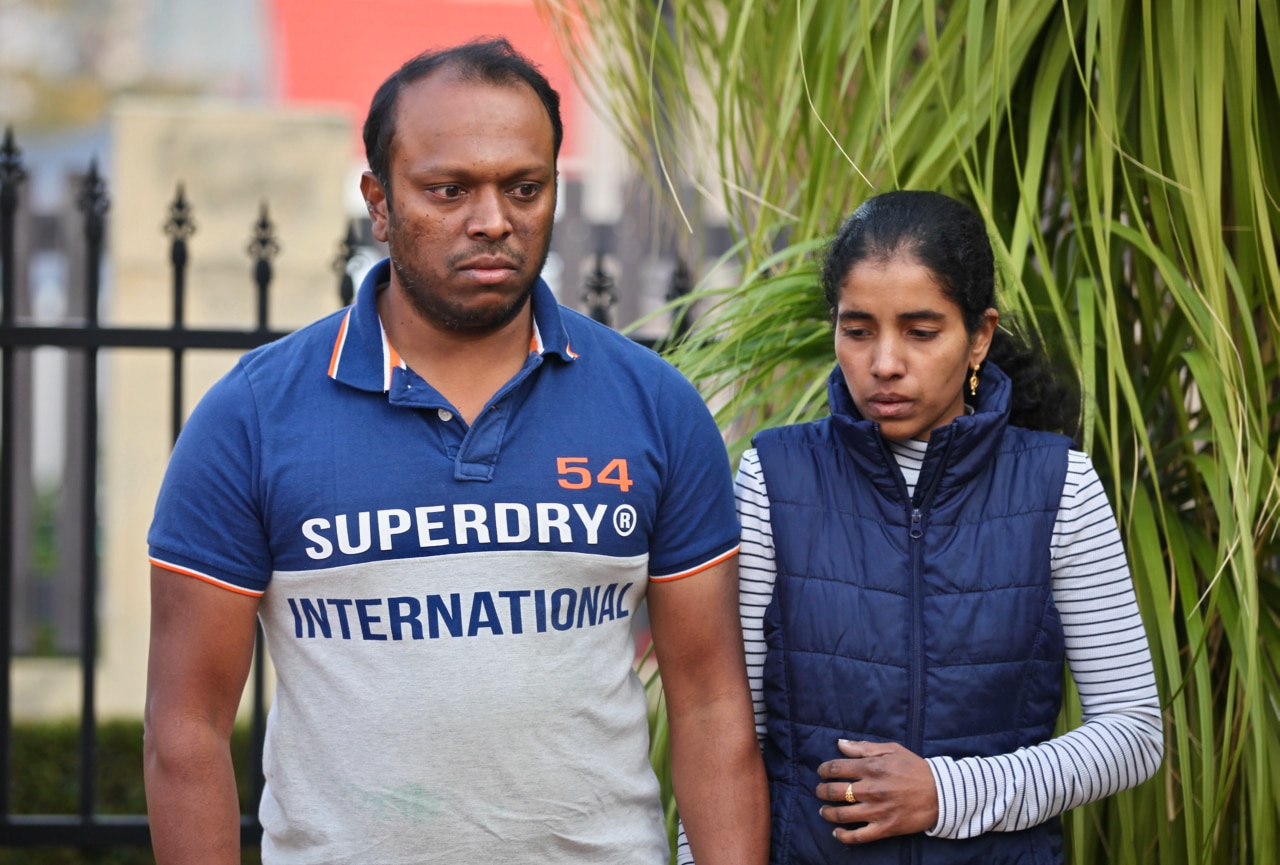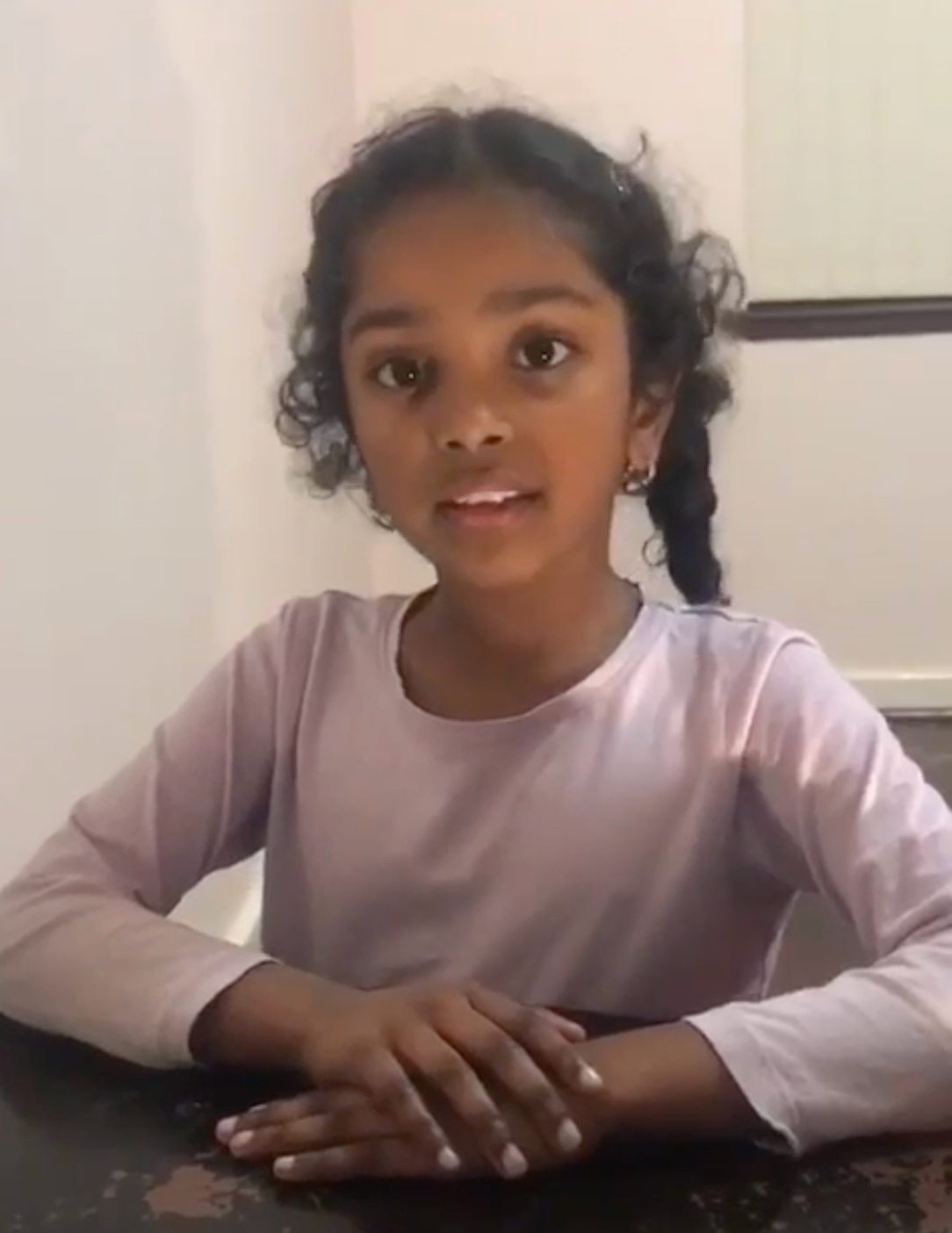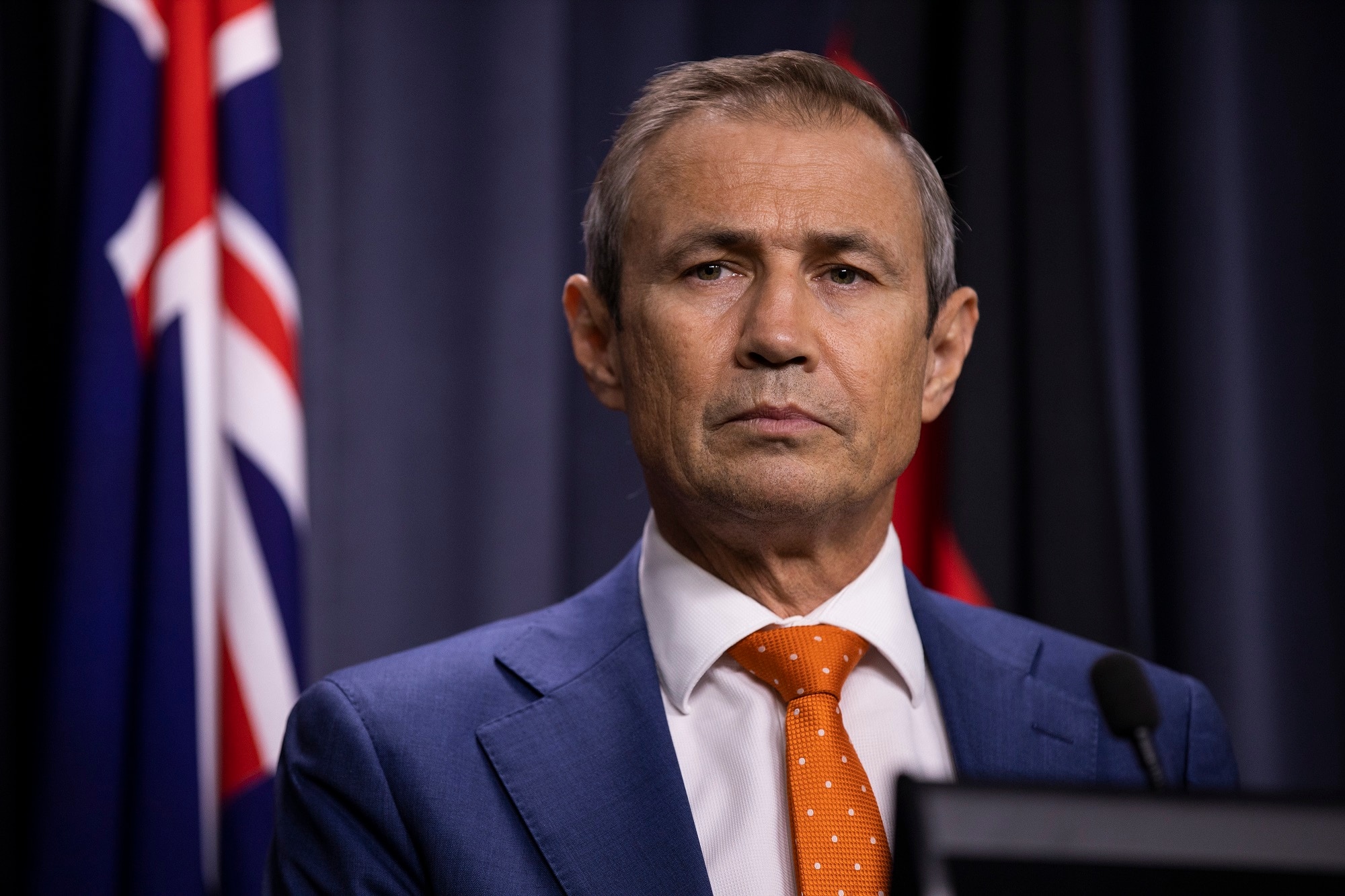'Pure medical negligence': Parents of Aishwarya Aswath slam report into her death
The parents of Aishwarya Aswath have described a report into their daughter’s death at Perth Children’s Hospital as “inconsistent” and have renewed calls for a full independent inquiry.
Aishwarya died on Easter Saturday of sepsis from a bacterial infection related to group A streptococcus, despite her parents begging to see a doctor at the hospital’s emergency department for nearly two hours.
The WA Child and Adolescent Health Services (CAHS), which operates Perth Children’s Hospital, spent six weeks conducting a review of the circumstances of Aishwarya’s treatment and death, before providing its report to the family on Wednesday.
On Thursday her parents, Aswath Chavittupara and Prasitha Sasidharan, said the report does not go far enough in examining the circumstances of their daughter’s death.
“I think it's pure medical negligence. We didn’t get the answers that we’re looking for,” Mr Chavittupara told reporters.
“From the internal inquiry, we knew that they would only look at some of the areas and ignore the rest. That’s why we’re calling for an external inquiry.”
The review was conducted by a 10-person panel comprised primarily of CAHS clinicians.
The WA government has committed to implementing 11 recommendations from the report, including a further review of issues at Perth Children’s Hospital, but not to an external inquiry into Aishwarya’s death.

Aishwarya Aswath died at Perth Children's Hospital.
Supplied by Suresh Rajan.
'Something wasn't right'
Aishwarya’s parents arrived with their daughter at the emergency department at Perth Children’s Hospital as 5.31pm on Saturday 3 April, after Aishwarya developed fever-like symptoms at home.
At that time, there were 41 patients in the emergency department, with 19 doctors and 14 nurses on duty.
A nurse assessed Aishwarya one minute later. Her parents say the triage included checks of their daughter’s heart rate, blood pressure and temperature, but the nurse couldn’t test Aishwarya’s oxygen level because ‘her hands were too cold’.
“The nurse said the heartbeat is a bit high, she explained it's because my daughter has a flu and her body is trying to fight it out. And the blood pressure was on the lower side, but she said that was normal,” Mr Chavittupara says.
“And when she took the temperature, it was definitely on the higher side. Then they tried to check the oxygen level. They couldn't read it. We asked them why, and they said, ‘because the hands are cold and sometimes the machine doesn't read it’. That's the explanation that we got”.
The nurse allocated Aishwarya a triage score of four, the second-lowest priority patient on the Australasian Triage Scale scale, to be seen by a doctor within 60 minutes.
Mr Chavittupara and Ms Sasidharan immediately felt their daughter was not properly assessed.

Aishwarya died at Perth Children's Hospital.
Aaron Fernandes/SBS News
“We were really worried because her condition was deteriorating pretty quick. That's why we tried to raise a lot of concern and they didn't respond the way we thought normal staff in an emergency department would react,” Mr Chavittupara says.
The parents say they spoke directly to hospital staff on approximately five occasions, trying desperately to see a doctor as their daughter’s condition worsened.
“My daughter complained that she needs to wash her face, because her vision is blurry. But looking at my daughter's face, I could see that her face was clean, but something was not right,” Mr Chavittupara says.
“And then we checked her eyes. The eyes had like white patches on the eyeball. So we called one of the nurses, and we said ‘my daughter is complaining about blurred vision’.
“The nurse casually said that the doctor will come and have a look. That is the reaction that I got from her.”

Her parents begged for medical attention.
Supplied: Suresh Rajan
At one stage, Mr Chavittupara says he physically carried his daughter out of the waiting room through the emergency department trying to find a doctor, but was told by a staff member simply to wait.
The parents say it was negligence, and not staffing shortages, that lead to the treatment they received.
“I think some of the staff were ignoring us, because they just didn’t want to talk to us. When we approached the staff and we told them … the staff just said the doctors would come and take a look. They didn’t want to take the responsibility,” he says.
“We never saw any compassion for anyone. We found the staff were a bit rude, and we found the level of humanity they had was very low,” Ms Sasidharan says.
Aishwarya died within minutes of seeing a doctor, with her parents strongly believing she would still be alive if medical intervention had occurred sooner.
'Limited assessment'
The WA Government did not publicly release the full report this week, but Health Minister Roger Cook tabled the recommendations in parliament on Wednesday.
Those recommendations reveal that the review panel found Aishwarya received an “incomplete triage”, which contributed to a failure to recognise the seriousness of her condition.
“The lack of a comprehensive triage, including a limited primary assessment of the patient, resulted in a triage score of four, which led the patient to be allocated a wait time of one hour to be seen by medical staff, which contributed in a delay in medical intervention,” the report reads.
Hospital staff also failed to identify Aishwarya’s abnormal temperature and failed to recognise the “persistent and significant” concerns of her parents, the report adds.
“The perceived lack of cultural awareness by staff for CALD families and patients may have resulted in non-recognition of the family’s significant concerns … which may (have) contributed to the delay in clinical intervention”.
WA Health Minister Roger Cook said the hospital did have minimum triage standards in place that nurses are required to follow, but stopped short of holding any individual responsible.
“Emergency departments are complex places and I’m not going to second guess the decisions that were made by staff on the night,” he said.
“There is certainly a model of care. The observation (by the review panel) is that there needs to be an upgrade to the clinical frameworks in which that triage is undertaken.”
The review panel recommended that Perth Children’s Hospital implement an awareness program focusing on CALD populations to ensure patient safety in the emergency department.

Western Australian Health Minister Roger Cook.
AAP
When asked about this recommendation by SBS News, Mr Cook attempted to clarify comments he made on Wednesday, when he said that cultural and language barriers did not play a role in the concerns of Aishwarya’s parents being ignored.
“(The report) is not conclusive,” he said.
“My understanding is that the feedback that the panel received is that did not play a role. But I respect the observations by the panel that we could undertake some further cultural awareness training.
“I’m conclusive in saying that the staff believe that was not the case.”
The report also revealed that the emergency department did not have a diagnostic tool for recognising sepsis and a lack of nursing staff in supervisory roles.
Mr Cook made a public apology to the family on Wednesday on behalf of the WA Government, and acknowledged they had been “failed” by the system.
WA Premier Mark McGowan also expressed his condolences to Asihwarya’s family, but said he will not be asking his minister to stand down over the failures at Perth Children’s Hospital.
“No system is perfect. But our system in Western Australia is one of the best or the best in the world,” Mr McGowan says.
CAHS Chief Executive Aresh Anwar said he offered his resignation to the government over the matter, but it was not accepted.
The chair of the board of Child and Adolescent Health Services Debbie Karasinski resigned on Wednesday following the release of the report's recommendations.

Samuel Wiki / Public Domain
Mr McGowan would not confirm whether the government will offer financial compensation to Aishwarya’s parents for their loss.
“Its way too early to talk about those sorts of things,” he said.
President of the Australian Medical Association (WA) said on Twitter the government was "releasing selected facts".
"Release all the report or none, as it is just spin to self justify on a few points without context," he said.
The WA government is releasing selected facts, such as the number of staff on duty, when Aishwarya died in their care.
Release all the report or none, as it is just spin to self justify on a few points without context.
/ 2
— Dr Miller - kids need vaccine too (@drajm) May 13, 2021
Aishwarya’s parents say they have written to the health minister to request the government implement a new system called “Aishwarya’s Care”, which will empower parents to escalate concerns in emergency departments.
“We want the system to change. As a concerned parent, we want the new system to be named after Aishwarya. We have written to Roger Cook and we have said we want the new system to be called Aishwarya’s Care,” Mr Chavittupara says.
“Aishwarya’s care will give a parent their right to escalate the situation, not just wait for staff to respond. We should get medical attention within three minutes, not wait for triage or wait for hospital staff to come”.